Key takeaways:
- Mentors provide invaluable guidance and emotional support, helping mentees navigate challenges and grow from setbacks.
- Applying a mentor’s advice, such as prioritizing user experience and seeking early feedback, can lead to significant breakthroughs in projects.
- Building a strong relationship with mentors involves mutual trust, open communication, and sharing experiences to foster deeper connections.
- Mentor experiences inspire future goals, emphasizing the importance of emotional design, collaboration, and the desire to mentor others.
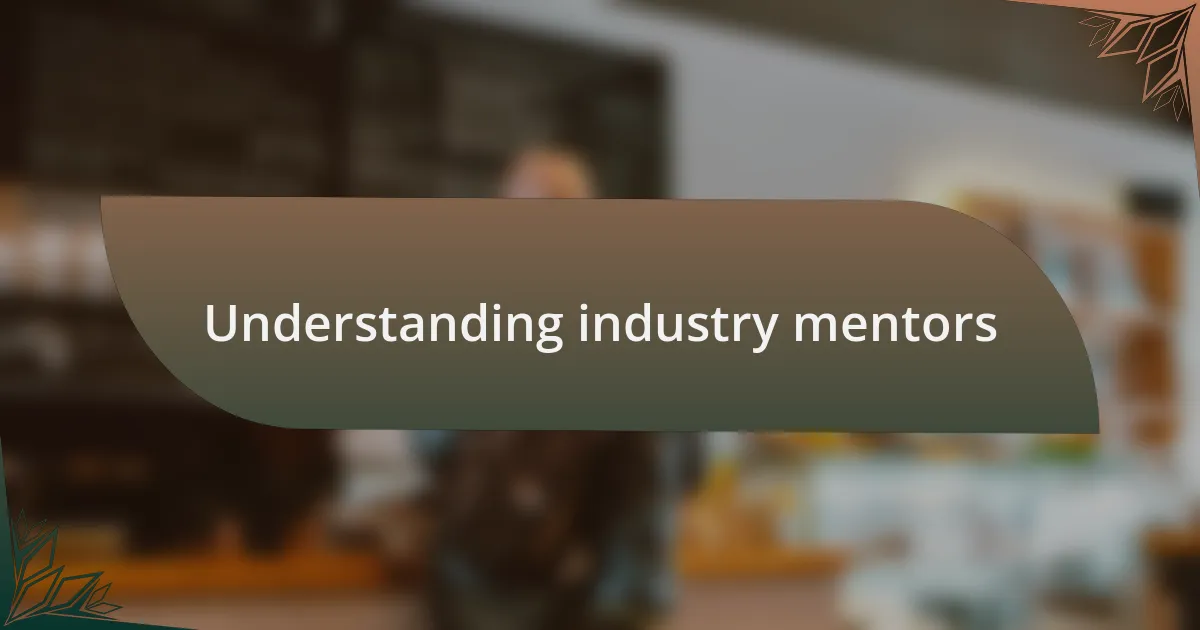
Understanding industry mentors
Understanding industry mentors is crucial, especially in a field as dynamic as web design. I remember my first encounter with a mentor; it felt like stepping into a world filled with possibilities. Have you ever had someone guide you through uncharted waters? That feeling of clarity, when someone shares their experience and wisdom, is invaluable.
Mentors serve as navigators, helping us chart our course in the complex landscape of our industry. I once faced a challenging project that seemed almost insurmountable, and my mentor’s insights not only illuminated the way but also boosted my confidence. Their ability to listen and provide tailored advice is akin to having a personalized roadmap for success.
The emotional connection with a mentor can also be profound; it’s not just about learning technical skills. I’ve felt frustrated and defeated, yet my mentor always reminded me that each setback is a stepping stone to growth. Isn’t it comforting to know that someone believes in your potential, especially during tough times? The support of a mentor can transform your journey, making each challenge an opportunity for learning and self-discovery.
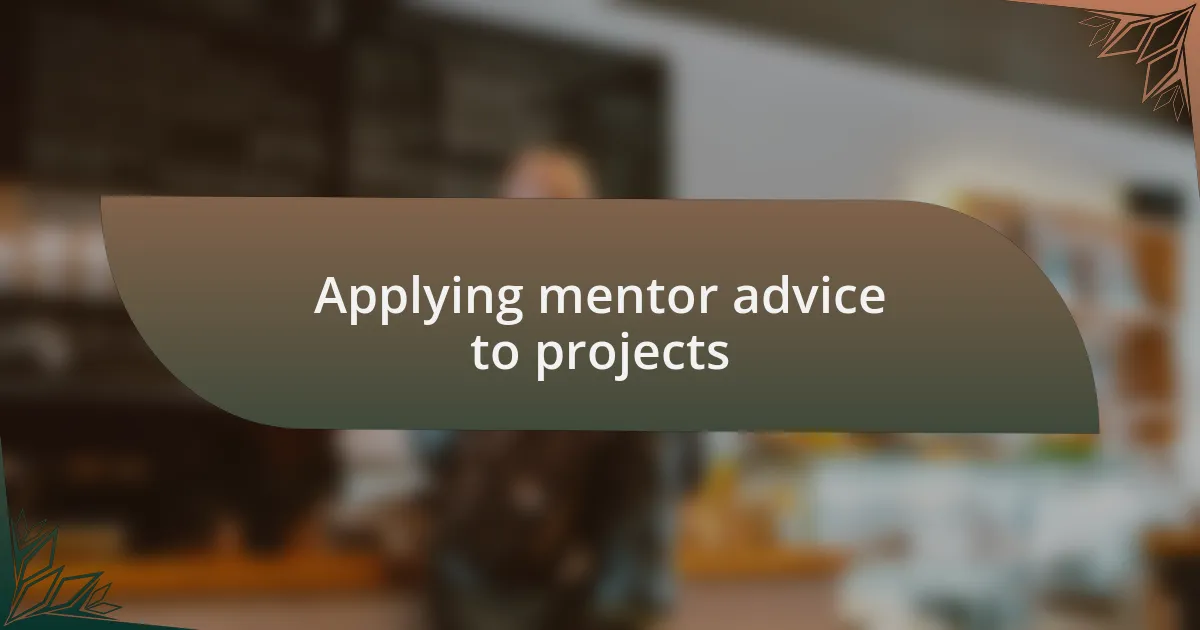
Applying mentor advice to projects
Applying mentor advice to projects often leads to unexpected breakthroughs. I remember a design project where I was stuck on layout choices, feeling overwhelmed by the endless possibilities. My mentor suggested focusing on the user experience first rather than the visuals. Following this advice completely reframed my approach, allowing me to create a more intuitive design that resonated with users. Have you ever had a lightbulb moment like that?
One invaluable lesson I’ve learned is the importance of feedback loops. A mentor once advised me to seek feedback early and often. In one of my projects, I shared my wireframes during the initial stages. The insights I gained helped rectify potential issues before the design went live, saving time and resources. It’s fascinating how involving others can illuminate blind spots I might have missed on my own.
Additionally, I’ve found that applying a mentor’s advice requires a balance of trust and personal intuition. When I worked on a team project, I hesitated to implement my mentor’s suggestion about color theory, thinking it might not fit our brand’s identity. However, when I finally took the leap and suggested fresh colors to the team, it sparked a vibrant discussion that elevated the entire project. Isn’t it amazing how stepping outside your comfort zone can lead to collective creativity?
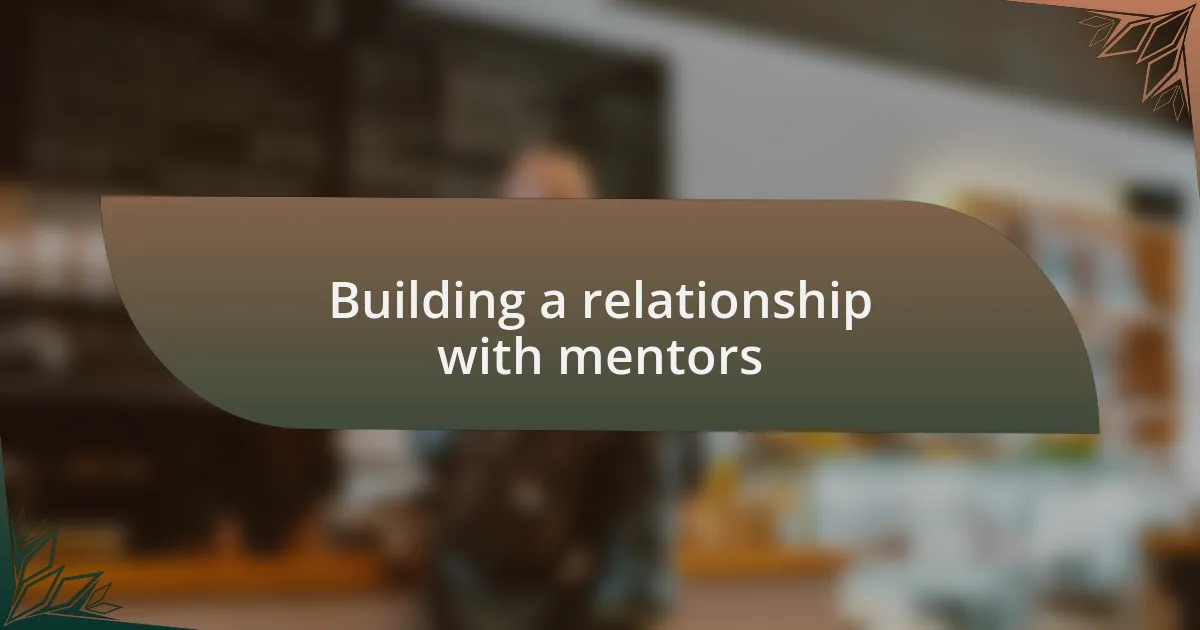
Building a relationship with mentors
Building a relationship with mentors is about cultivating mutual trust. I recall a time when I hesitated to approach a mentor, worried that my questions might come off as trivial. Yet, I learned that they genuinely appreciated my curiosity and willingness to learn. This experience taught me that vulnerability can pave the way for deeper connections.
Creating a rapport with mentors often requires investing time in understanding their perspectives. During our conversations, I found that sharing my design struggles made them more relatable. One mentor even opened up about their own early missteps in the industry, which not only reassured me but also strengthened our bond. Have you ever noticed how shared experiences can foster a genuine connection?
Moreover, I believe that maintaining consistency in communication is crucial. I make it a point to check in regularly with my mentors, not just when I need guidance. For instance, I once sent a simple email sharing a recent success I had in my design work, and it sparked an inspiring dialogue. This ongoing exchange reinforces the relationship and keeps the mentorship dynamic alive. How do you keep in touch with your mentors?
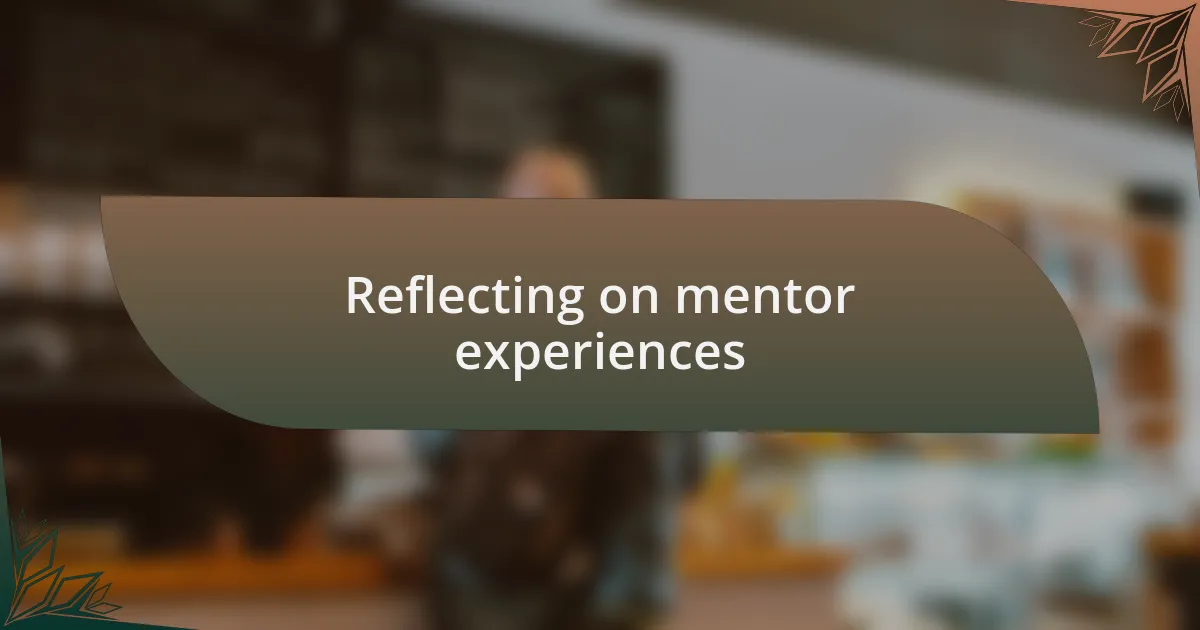
Reflecting on mentor experiences
Reflecting on mentor experiences often reveals insights that extend beyond technical skills. I remember a particular moment when a mentor pointed out my tendency to overthink design decisions. Their simple suggestion—to trust my instincts more—was a real game-changer for me. It made me wonder, how often do we let our own doubts overshadow our creativity?
In another instance, a mentor shared their journey of failure and resilience. Listening to their story about a project that initially flopped, yet eventually led to a breakthrough, struck a chord with me. This vulnerability not only inspired me to embrace my mistakes but also highlighted the importance of learning through failure. Have you ever had a similar experience where someone else’s honesty pushed you to grow?
Ultimately, reflecting on these mentor experiences has deepened my appreciation for their role in my professional path. Each conversation has left me with a treasure trove of lessons, often better than any formal education could provide. Isn’t it fascinating how a few key moments of guidance can define our trajectory in such a profound way?
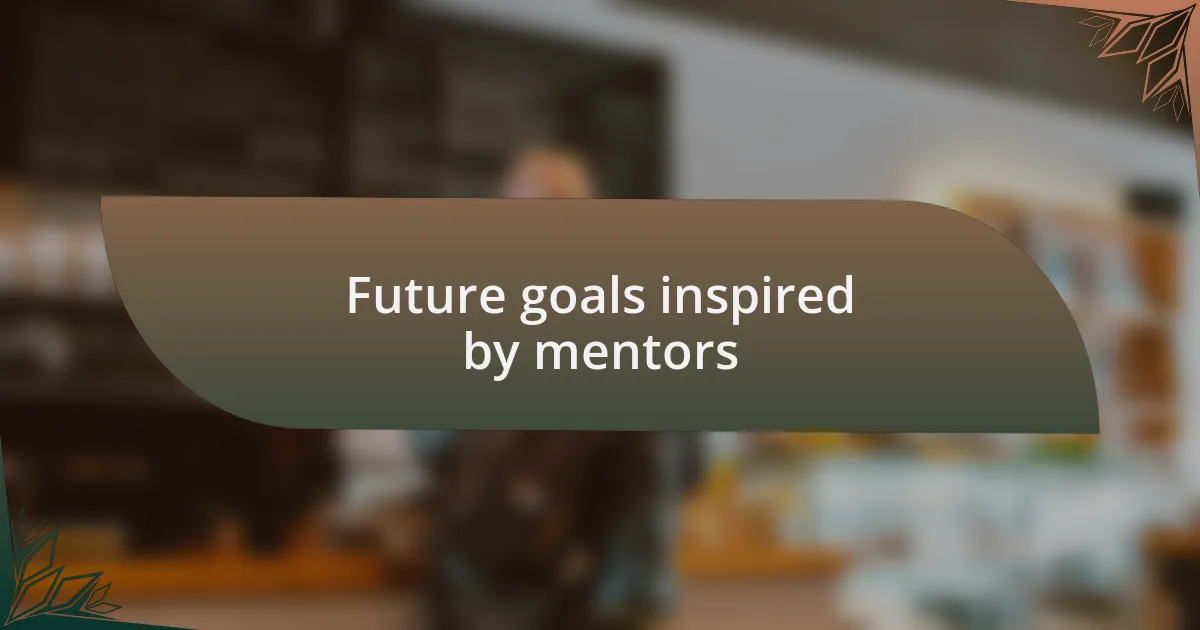
Future goals inspired by mentors
The future goals I’ve set for myself are deeply influenced by my mentors’ wisdom. One mentor once told me, “Your work should not only solve problems but also evoke emotions.” This advice prompted me to pursue projects that prioritize user experience, pushing me to explore concepts like emotional design. It makes me think, how can I ensure that my designs leave a lasting impression on users?
Another pivotal moment came during a brainstorming session with a mentor who emphasized the importance of collaboration. They shared how partnerships in past projects often led to breakthroughs that transformed initial ideas into innovative solutions. This insight has motivated me to seek out more collaborative opportunities in my upcoming work. Have you considered how teaming up might elevate your own projects?
As I look ahead, I find myself drawn to goals that extend beyond personal achievement. Inspired by my mentors, I strive to mentor others as they did for me. It’s rewarding to think that I can contribute to someone else’s journey, just as my mentors have enriched mine. How fulfilling would it be to foster a new generation of designers?